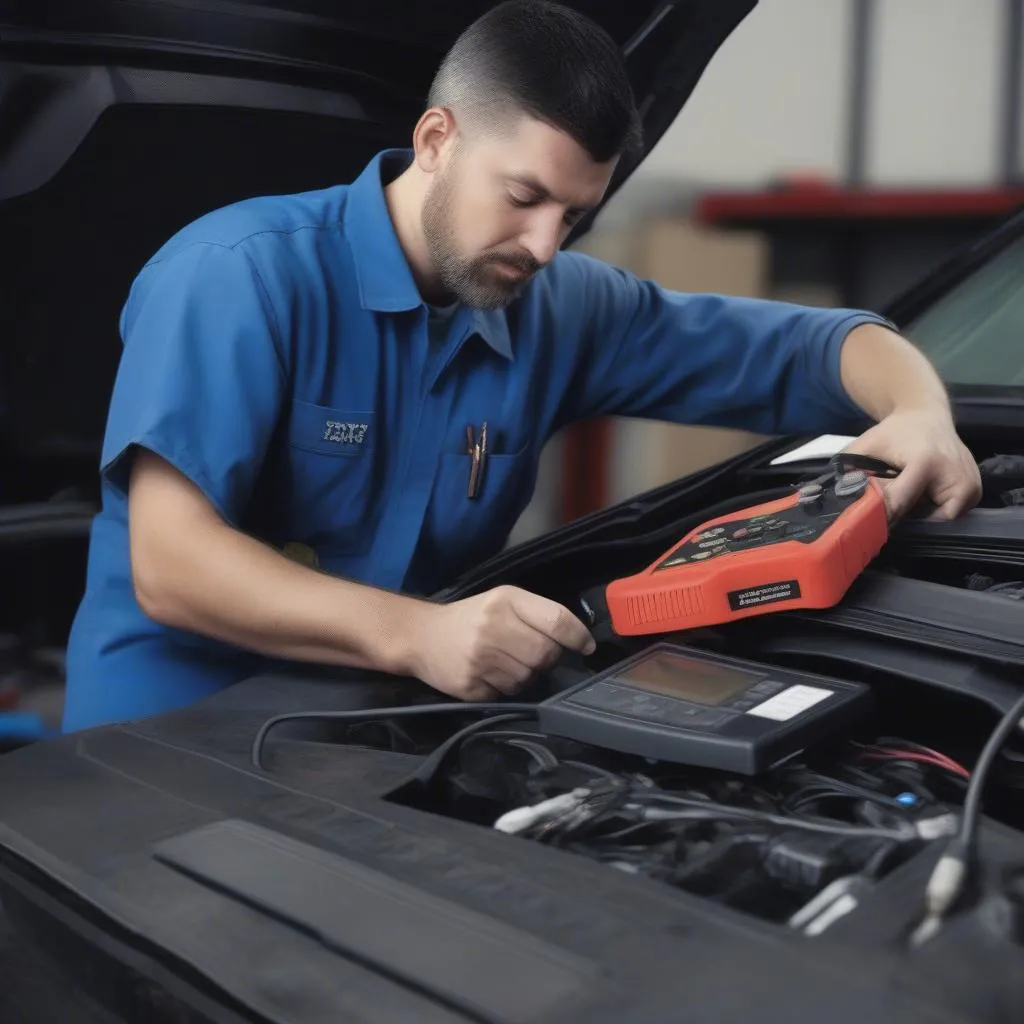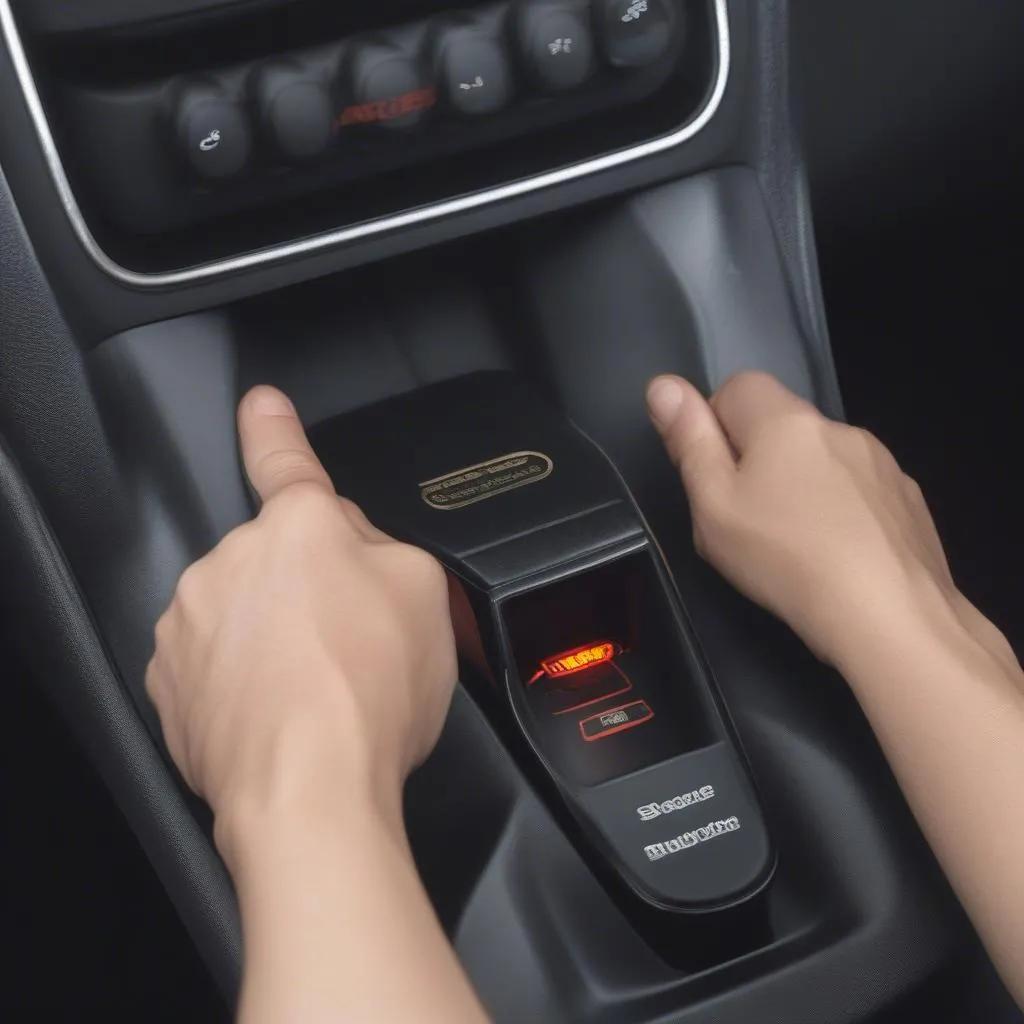Have you ever been driving down the road and suddenly noticed the anti-lock brake light flashing on your dashboard? It’s a scary experience, and it’s natural to wonder if you’re going to be stuck on the side of the road. In this article, we’ll explore the reasons behind this light and how you can safely reset it, leaving you feeling confident behind the wheel once again.
Understanding the Anti Lock Brake Light
The anti-lock brake system (ABS) is a safety feature designed to prevent your wheels from locking up during braking, ensuring better control and preventing skidding, especially on slippery surfaces. The ABS light is a critical indicator, signaling a potential malfunction within the system.
From a technical standpoint:
The ABS light can illuminate due to a variety of factors, including:
- Faulty ABS sensor: These sensors monitor wheel speed and send data to the ABS control module. If a sensor malfunctions, the ABS system can’t operate correctly.
- Damaged ABS wiring: Damaged wiring can disrupt communication between the ABS sensors and the control module.
- Low brake fluid: If the brake fluid level is low, it can affect ABS functionality and trigger the warning light.
- Problem with the ABS control module: This electronic unit manages the ABS system, and a fault in the module can cause the warning light to illuminate.
- Faulty wheel speed sensor: If a sensor malfunctions, it can affect the ABS system and trigger the warning light.
- A loose connection: A loose connection in the ABS system can interrupt the flow of information and activate the warning light.
From an economic perspective:
A malfunctioning ABS system can lead to:
- Increased repair costs: If you ignore the ABS light and the problem worsens, repairs could become more expensive.
- Potential accidents: A malfunctioning ABS system can compromise your ability to brake effectively, increasing the risk of accidents.
- Lower resale value: A car with a known ABS problem may be less desirable to potential buyers, resulting in a lower resale value.
How to Reset the Anti Lock Brake Light: A Step-by-Step Guide
While resetting the ABS light may seem tempting, it’s crucial to understand that it’s often a temporary solution. If the underlying problem isn’t addressed, the light will likely reappear. Here’s a common way to reset the ABS light:
-
Turn the ignition to the “ON” position. Don’t start the engine.
-
Press the brake pedal down firmly and hold it for about 30 seconds. This helps to bleed the brake system and reset the ABS module.
-
Release the brake pedal and turn the ignition off.
-
Restart the engine.
-
Check the ABS light. The light should have reset, but if it persists, it’s essential to have your car inspected by a qualified mechanic.
Why Resetting the ABS Light Might Not Be Enough
Remember, simply resetting the ABS light doesn’t necessarily fix the underlying problem. The light might turn off, but the issue could still exist, leading to potential safety risks.
Let’s consider a real-life example:
Imagine you’re driving a Ford F-150 on a highway in Texas and the ABS light suddenly turns on. You try resetting the light as described above, and it goes off. You continue driving, but a few days later, the light reappears. In this scenario, resetting the light provides temporary relief, but it doesn’t address the root cause. It’s essential to consult with a certified mechanic to diagnose the problem and ensure the ABS system is working safely.
Common Questions about Resetting the Anti-Lock Brake Light
Can I reset the ABS light myself?
While it’s possible to reset the ABS light using the method described above, it’s crucial to understand that this doesn’t always fix the issue. If the ABS light remains on after resetting, you should consult a qualified mechanic to diagnose and address the problem.
What does a flashing ABS light mean?
A flashing ABS light indicates a more serious problem within the system, often related to a faulty ABS sensor or wiring. It’s important to seek professional assistance as soon as possible.
Can I drive with the ABS light on?
While you can still drive with the ABS light on, it’s not recommended. The ABS system may not be functioning correctly, potentially compromising your braking ability, especially in emergency situations.
What should I do if the ABS light won’t reset?
If you’ve tried resetting the light and it doesn’t go off, it’s time to contact a qualified mechanic. They have the diagnostic tools and expertise to identify and resolve the issue.
Expert Insights: A Word from the Professionals
“It’s essential to address a malfunctioning ABS system promptly,” states John Smith, a seasoned automotive technician specializing in European vehicles. “Ignoring the ABS light can lead to serious consequences, including a loss of braking control, which can be hazardous in any driving situation.”
Common Causes of a Malfunctioning ABS System
- Faulty ABS sensor: These sensors are critical for the ABS system to function correctly. A malfunctioning sensor can disrupt the system and trigger the warning light.
- Damaged ABS wiring: The wiring connecting the ABS sensors and control module can get damaged over time, leading to communication issues and the ABS light turning on.
- Low brake fluid: Brake fluid is crucial for the ABS system to operate properly. Low brake fluid can affect the hydraulic pressure required for ABS functionality, triggering the warning light.
What to Do When the Anti Lock Brake Light is On
If you encounter an ABS light while driving, here’s what you should do:
- Pull over to a safe location. Do not ignore the warning light and continue driving.
- Check the brake fluid level. If the fluid level is low, you need to add brake fluid immediately.
- Inspect the ABS sensors and wiring. Look for any visible damage or loose connections.
- Consult a qualified mechanic. If you can’t identify the problem, it’s best to take your car to a professional for diagnosis and repair.
Conclusion
The anti-lock brake light is a vital safety indicator, signaling a potential issue within the ABS system. While resetting the light might provide temporary relief, it’s essential to address the underlying problem. Ignoring a malfunctioning ABS system can lead to hazardous situations. Seek professional assistance from a qualified mechanic to diagnose and repair the problem, ensuring your safety and peace of mind on the road.
Do you have any further questions about your car’s ABS system? Leave a comment below, and we’ll be happy to help! If you need assistance with diagnostics or have any concerns, please don’t hesitate to contact us via Whatsapp: +84767531508. Our team of experts is available 24/7 to guide you.
 Anti-Lock Brake Light Issue
Anti-Lock Brake Light Issue
 Mechanic Diagnosing ABS Light
Mechanic Diagnosing ABS Light
 Resetting ABS Light
Resetting ABS Light
Let’s ensure everyone stays safe on the road by understanding and addressing these important safety features. Happy driving!